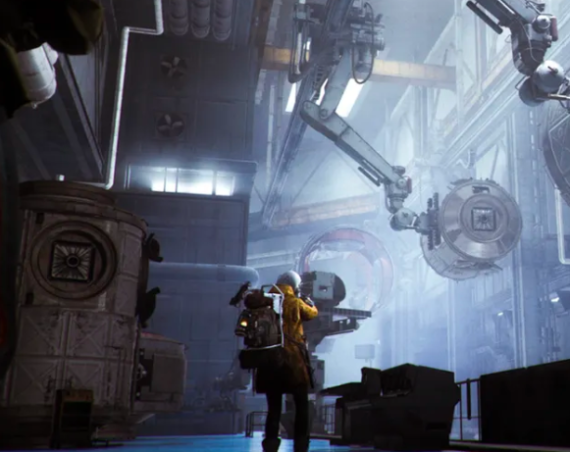
EA Assures Employees of No Immediate Layoff Changes Following $55 Billion Buyout
Electronic Arts (EA) recently addressed employee concerns about potential layoffs following its historic $55 billion buyout by stating there will be no immediate changes to jobs or teams. This message, disclosed through an internal employee FAQ filed with the U.S. Securities and Exchange Commission (SEC), aims to provide some reassurance amid widespread anxiety about the future of the company.
Overview of EA’s $55 Billion Acquisition and Its Implications
On September 29, EA confirmed the buyout, which will transition the company to a privately held entity. The deal includes $20 billion in assumed debt and is expected to close within the next six to nine months, according to the company’s leadership. The consortium leading the acquisition comprises Saudi Arabia’s Public Investment Fund, private equity firm Silver Lake, and Jared Kushner’s Affinity Partners.
Employee Concerns and Company Response
In the FAQ, EA addressed the critical question: “Will private ownership lead to layoffs?” The clear statement was that no immediate changes to jobs, teams, or daily work are planned as a direct result of the acquisition. EA emphasized a commitment to innovation and global expansion, underscoring that these goals require maintaining motivated, world-class teams.
- Job security reassurance: Immediate status quo maintained.
- Focus areas: Innovation, expansion, and team strength.
- Expected deal closure: Within six to nine months.
Potential Future Challenges: Layoffs and Debt Servicing
While the FAQ reassures no immediate layoffs, the term “immediate” leaves open uncertainty regarding potential future restructuring. Historically, mega mergers and leveraged buyouts in the gaming industry often precipitate workforce reductions and consolidation efforts to manage new debt burdens.
Market analysts express cautious concerns. Veteran industry analyst Serkan Toto of Kantan Games predicts layoffs or studio closures may occur in the near future, though not instantaneously after the transaction closes. This perspective aligns with broader industry patterns; a 2023 report by GamesIndustry.biz notes that around 15-20% of employees at large studios are often impacted within a year following major mergers.
David Cole, CEO of DFC Intelligence, predicts EA might opt to sell off smaller studios or franchises instead of large-scale layoffs, aiming to maximize value and reduce debt. His upcoming report will analyze legacy EA franchises such as SimCity, Dragon Age, and Command and Conquer, which carry significant market value despite not being current revenue drivers.
Key considerations include:
- Debt servicing: $20 billion in debt will necessitate careful financial management.
- Studio consolidation: Possible sales of non-core assets or franchises.
- Market competitiveness: Balancing investment in innovation with cost control.
Cultural Impact and Company Values
EA addressed concerns about cultural shifts under new ownership by reaffirming that its mission, values, and player commitment will remain intact. The company vows to uphold core cultural principles such as creativity, passion, teamwork, and determination during and after the ownership transition.
However, the involvement of international investors—particularly Saudi Arabia’s Public Investment Fund—has sparked speculation among employees and industry watchers about potential changes in creative direction or content sensitivity. EA has not publicly commented on these cultural concerns beyond the commitment to its existing values.
Current Management and Financial Position
EA’s leadership intends to maintain continuity in executive roles, with CEO Andrew Wilson remaining at the helm. The company highlights that it is currently in a strong financial position; the buyout is characterized as a strategic move to increase agility and unlock new global opportunities, rather than a rescue of a struggling business.
Financial and Employee Highlights:
- CEO Andrew Wilson to continue leading with no executive team changes.
- EA confirms strong financial health despite acquisition debt.
- Employees with equity will receive a cash premium for vested shares at $210 per share.
- Current compensation and benefits will be maintained through the transition.
- Employee Stock Purchase Program (ESPP) will be adjusted in preparation for closing.
- Bonus programs are expected to proceed as scheduled, with payments in June 2026.
Industry Context: Leveraged Buyouts and Layoff Trends
Leveraged buyouts, where acquisitions are heavily financed through debt, often result in operational restructuring. According to Deloitte’s 2024 M&A report, industries including technology and gaming show a 30% chance of layoffs post-acquisition, primarily in non-core divisions.
The gaming sector has witnessed a wave of consolidation in recent years, with companies like Microsoft (acquiring Bethesda) and Take-Two Interactive (acquiring Zynga) undertaking similar restructuring efforts that included staff reductions and studio sales.
Factors Influencing Outcomes Post-Buyout:
- Debt management strategies to service high acquisition costs.
- Pressure to deliver shareholder value and profitability.
- Market competition intensifying with new entrants and technologies.
- Potential shifts in game design priorities and production schedules.
Conclusion
Electronic Arts’ confirmation of no immediate layoffs following its landmark $55 billion buyout offers temporary assurance to employees. Nonetheless, the significant financial implications of the acquisition, industry precedents, and expert analysis suggest that structural changes could unfold in the medium term. Stakeholders will closely monitor how EA balances innovation, cultural values, and financial pressures as it embarks on this new chapter.
Understanding the context of leveraged buyouts in the gaming industry can provide a lens to evaluate EA’s trajectory. While the company is optimistic about growth and innovation, cautious observation is warranted as the buyout deal closes and the private ownership era begins.



